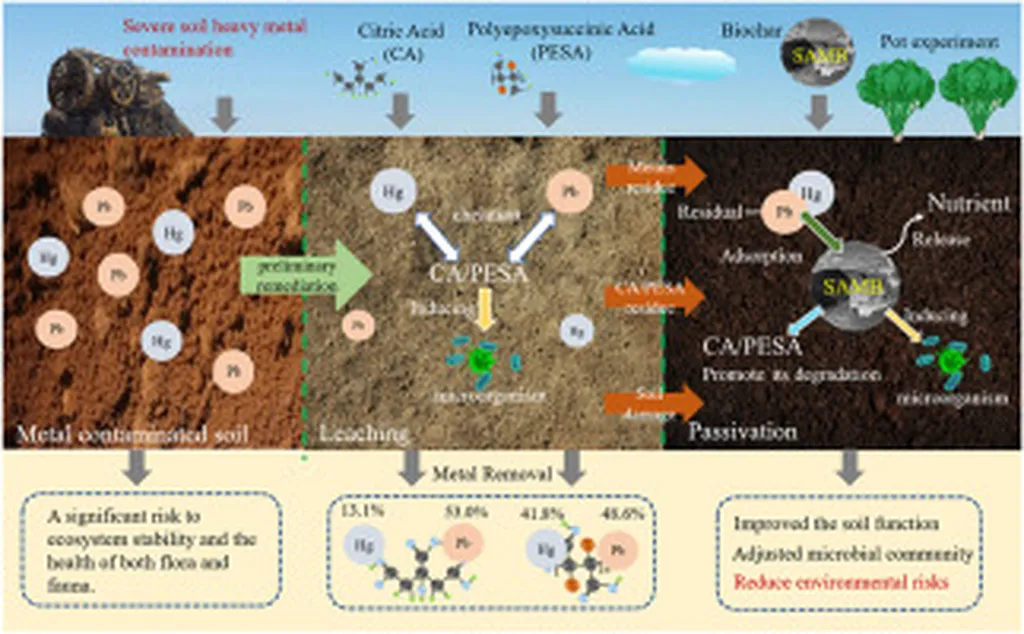In the quest to tackle manganese contamination in acidic wastewater, a team of researchers led by Yongchao Li from the Key Laboratory of Recycling and Eco-Treatment of Waste Biomass of Zhejiang Province at Zhejiang University of Science and Technology has made a significant breakthrough. Their study, published in *Industrial Crops and Products*, introduces a novel biofiltration system that combines acid-tolerant bacteria with pine waste-derived biochar, offering a promising solution for efficient Mn(II) removal.
Manganese contamination in wastewater is a pressing environmental concern, particularly in industrial and agricultural settings. Conventional biological treatments often falter under low-pH conditions, leaving a gap in effective remediation strategies. The research team addressed this challenge by isolating an acid-tolerant manganese-oxidizing bacterium, *Bacillus megaterium* strain M3, and exploring its synergy with various biochars derived from rice straw, cow dung, and pine waste.
The findings were striking. Pine waste-derived biochar significantly enhanced microbial Mn(II) oxidation, with biochar-MnOB systems showing a 22.55% higher oxidation rate compared to biochar-free controls. In continuous biofilters, this synergistic effect reduced startup time by 20–33% compared to quartz sand systems, achieving compliance with the < 2 mg/L Mn discharge standard within 30 days, even at a pH of 4.0.The study's lead author, Yongchao Li, emphasized the multifaceted role of biochar in this process: "Biochar functions through multiple mechanisms. Its porous and inert structure provides a habitat for microbes while buffering localized pH. Additionally, it stimulates the secretion of protein-rich extracellular polymeric substances and enhances enzyme activity, leading to the formation of higher-valency manganese oxides."The implications for the agriculture sector are substantial. This innovative approach not only addresses environmental pollution but also valorizes agricultural waste, turning pine waste into a valuable resource. As the world grapples with the dual challenges of waste management and water pollution, this research offers a cost-effective and sustainable solution.The study's findings could shape future developments in environmental biotechnology, particularly in the realm of wastewater treatment. By bridging agricultural waste recycling with wastewater remediation, this research highlights the untapped potential of biochar in creating cleaner, healthier environments.As the agricultural industry continues to seek sustainable and efficient solutions, the integration of biochar-amended biofiltration systems could become a cornerstone in the fight against water pollution, offering a beacon of hope for a greener future.

